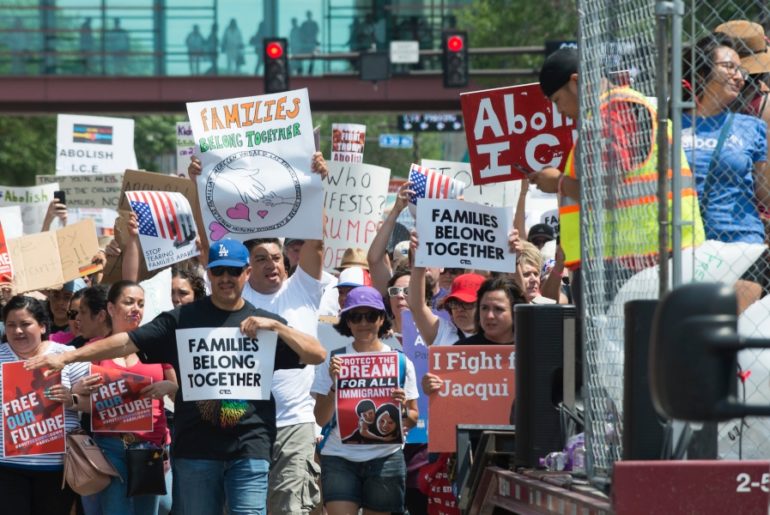More than a hundred children held at detention centers run by Immigration and Customs Enforcement (ICE) will be released by the end of this week after a federal judge ruled that keeping them locked was a threat to their personal health and well-being.
“The FRCs [family residential centers] are ‘on fire’ and there is no more time for half measures,” Judge Dolly M. Gee of the US District Court for the Central District of California wrote in her order. “Health professionals have warned all along that individuals living in congregate settings are more vulnerable to the virus.”
The ruling orders that children in two of the three detention centers run by ICE, located in Texas and Pennsylvania, should be released no later than July 17, 2020. Judge Gee also specified that the children should be released at “deliberate speed” either with their parents or with their parents’ consent to be released to “available suitable sponsors or other available COVID-free non-congregate settings.”
The decision comes after months of pushback from activists and lobbyists who have cited the coronavirus pandemic as a huge threat for immigrants in detention. However, advocates and lawyers say that the ruling is not enough to solve the multiple shortcomings in ICE’s management of the coronavirus.
Over the last couple of months, there have been several complaints against ICE for their mismanagement of the health crisis, including lack of availability of protective equipment or social distancing measures amongst their detainees. Just last month, the House Democrats wrote a letter to the Trump administration asking for an explanation as to why some immigrant parents were told to decide between keeping their children detained with them or allowing them to be released without them.
“The Administration must stop using this public health crisis as a means for implementing unlawful and inhumane immigration policies. In these extraordinary times, human suffering need not be compounded by locking up families or instilling fear in the hearts of migrant parents,” read the letter, directed to acting Homeland Security Secretary Chad Wolf and acting ICE Director Matt Albence.
The main problem with Judge Gee’s ruling is that it only has power over minors. Parents have no guarantee of being let go any time soon, pushing them to make a decision of whether to release their children without their parents.
“What’s certain and consistent is that these choices were presented to our clients and that our clients walked away truly feeling that they were asked to say goodbye to their children,” Shay Fluharty, director of Proyecto Dilley, an organization that provides legal services for families in detention, told The New York Times.
In response, ICE has stated that because of their deportation orders, it considered most of his detainees to be flight risks. Even so, the agency said they had freed 900 immigrants as of May. However, close to 52000 people remain in custody, including124 children in their three detention centers and 507 more in the Office of Refugee Resettlement shelters as of June 8. Overall, around 2500 detainees have tested positive for coronavirus under ICE’s custody.
“[Judge Gee] clearly recognized that the government is not willing to protect the health and safety of the children, which is their obligation,” Amy Maldonado, an attorney who works with detained families, told the Los Angeles Times. “They need to make the sensible choice and release the parents to care for their children.”
Immigrants’ rights groups have started to incite the public to call for ICE to release the parents along with their children. The Families Belong Together organization, for example, is launching a petition in which they ask people to email ICE demanding that families be released together and citing the death of various deteniss under ICE‘s supervision as a call for action.
“Some detained parents facing deportation brought their children to this country to save them from rampant violence in their home countries,” Peter Schey, Counsel for the class of detained children told The New York Times. “And [they] would prefer to see their child released to relatives here rather than being deported with the parent to countries where children are routinely kidnapped, beaten and killed.”

